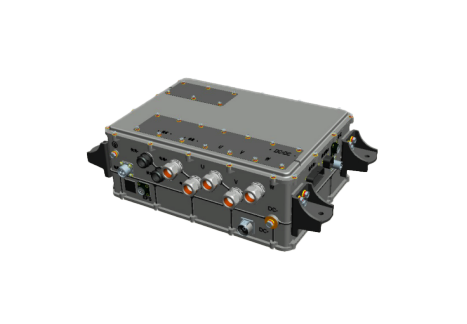
The introduction of drilling motors into the oil and gas industry has revolutionized the way drilling operations are conducted. These motors play a crucial role in the drilling process by providing the necessary power to rotate the drill bit and penetrate into the earth's crust. As technology has advanced, so too have the controllers that operate these motors, moving from analog to digital technology.
In the early days of Drilling Motor Controllers, analog technology was the norm. These controllers were typically simple and operated using basic electronic components such as resistors, capacitors, and transistors. While analog controllers were effective in controlling the speed and direction of the drilling motor, they had limitations in terms of precision and flexibility. Additionally, the maintenance and troubleshooting of analog controllers could be time-consuming and costly.
The advent of digital technology brought significant advancements to drilling motor controllers. Digital controllers are equipped with microprocessors that can process and analyze data much faster and more accurately than analog controllers. This allows for greater control over the drilling motor, resulting in improved efficiency, performance, and reliability. Digital controllers also offer more advanced features such as remote monitoring and diagnostics, which can help identify and address issues before they escalate.
One of the key benefits of digital drilling motor controllers is their ability to be programmed and customized to meet specific drilling requirements. This flexibility allows operators to adjust parameters such as speed, torque, and direction in real-time, optimizing the drilling process for maximum productivity and safety. Digital controllers also have built-in safety features that can automatically shut off the motor in the event of a malfunction or exceedance of pre-set limits, reducing the risk of accidents and equipment damage.
Another advantage of digital drilling motor controllers is their compatibility with modern drilling systems and data acquisition tools. These controllers can interface with drilling rig automation systems, enabling seamless integration and data sharing between various components of the drilling operation. This connectivity facilitates real-time monitoring and control of the drilling motor, allowing operators to make informed decisions based on up-to-date information.
Overall, the evolution of drilling motor controllers from analog to digital technology has significantly enhanced the efficiency, precision, and safety of drilling operations. Digital controllers offer a wide range of advanced features and capabilities that were previously unavailable with analog controllers. As technology continues to advance, we can expect further improvements and innovations in drilling motor controllers, further optimizing the drilling process for increased productivity and operational excellence.
PRODUCT
No. 69, Modern Enterprise Center, Zhangbali Road, High tech Zone, Yanta District, Xi'an City
186-9186-8655
baishidong@advance-xa.com
Copyright
Comment
(0)